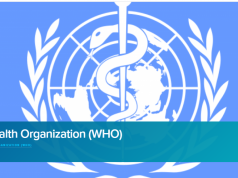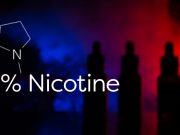Professor Michael Siegel who lectures for the Department of Health Sciences at Boston University School of Public Health, and possesses 25 years worth of experience in the field of tobacco control, wrote about this in his Blog yesterday on the 18th of July.
Altria told the FDA that the PreMarket Tobacco Application it has in place creates requirements that are “unruly burdensome, unnecessary, and beyond the scope of the agency’s jurisdiction under the Tobacco Control Act”. Altria continued that these requirements will force many small corporations out of business, which ultimately goes against the promotion of public health. Altria pointed out that the FDA itself acknowledged that a number of small vaping businesses wouldn’t survive as a consequence of these requirements, yet none of these statistics appeared in its regulatory impact analysis.

Altria Group is the parent company for Philip Morris USA (which manufactures cigarettes for Marlboro), John Middleton, U.S. Smokeless Tobacco Company, Ste. Michele Wine Estates, Philip Morris Capital Corp, Nu Mark and At a glance. Besides its own vaping products marketed under the brand MarkTen, Nu Mark acquired in Feb 2014 the cigalike manufacturer Green Smoke for approximately $110 million. Altria and Philip Morris International (PMI), through strategic framework agreements, seem to be willing to share vaping products and reduced-risk tobacco products (like the iQOS) commercialization in the US and Europe.
Dr. Siegel concurs with Altria’s proposal to “establish baseline performance standards for ENDS (Electronic Nicotine Delivery Systems) products that, when met, would serve as the basis for an abbreviated or alternative marketing authorization pathway to satisfy the statutory PMTA requirements.” and continued by listing Altria’s main goals which are :
1) “support manufacturers’ efforts to develop and bring to market innovative products that may advance the public health.”
2) “allow industry participants to engage and compete in a dynamic market.”
Are Big Tobacco Companies always the “bad guys”?
This is not the first time we witnessed what seems to be an initiative with the public’s health in mind by Big Tobacco companies. Infact such companies have been trying to change their image by investing a substantial amount of money in research and develop “Potentially Risk Reduced Products”. However many anti-tobacco activists remain suspicious of tobacco companies, and fear that such initiatives are nothing but a marketing ploy, and a way to generate a new source of revenue (from vaping products and by keeping dual usage among vapers), as the sales from tobacco cigarettes decline.
A Swiss researcher from the University of Geneva, Jean-Francois Etter wrote his own reflections on the matter last December. Clearly he shares the same sentiment as Siegel as he had pointed out that although one cannot dismiss the fact that initiatives such as research in favor of public health and the transition into the vaping may carry conflict of interest and make sense for tobacco companies from an economic standpoint, one must not just dismiss the legitimacy of their research and products just because they have a bad reputation. At the Global Forum On Nicotine last June, Dr.B.Dautzenberg disagreed with Etter on accepting scientific research funded by big tobacco companies stating “I Don’t agree. JF Etter defends at the GFN 16 the publication of articles by Big Tobacco in scientific journals. No, No”.
In his article Siegel went into detail to show how Altria and Reynolds American are not offering youth friendly flavoured vaping liquids and how their marketing is definitely not targeted at youths. He also points out that their products are not accessible to non-adults in any way, as they do not sell any products via internet, and they do not sell the cheaper disposable versions. He claims that although there are a small number tobacco companies with no scruples, the two afore mentioned companies are definitely not amongst them, and this latest appeal to the FDA and the fact that they’re behind the Bishop-Cole Amendment are proof of that.
In terms of health even if we had to the take the worst case scenario in consideration, and discuss dual usage which is often witnessed with first generation products, commonly called cigalikes and mainly sold by tobacco companies, Siegel thinks that any step toward reduction of tobacco consumption, even if minimal is a step forward. He reminded us many times that lung cancer is not the only disease caused by smoking and that many of these conditions could be minimized just by reducing the amount of cigarettes smoked in a day. On the contrary other health experts see in dual usage just a failure in vaping as not managing to help smokers quit completely.
What is the priority?
Siegel concludes by appealing to anti-tobacco organizations to look at the bigger picture and maintain perspective where the main objective should be supporting anything that promotes health and reducing mortality, and not “simply to continue an unrelenting attack on cigarette companies”.
By constantly being accused of working in the shade of Big Tobacco, vaping advocates often try to legitimate their independence from the tobacco industry. Accepting and supporting Big T’s presence like Siegel is suggesting, could pose a particular image dilemma that some of them are probably not ready to take for now. A red line between the two worlds (tobacco and vaping) might be necessary anyway in the dialog vapers have been trying to establish with authorities for years.












